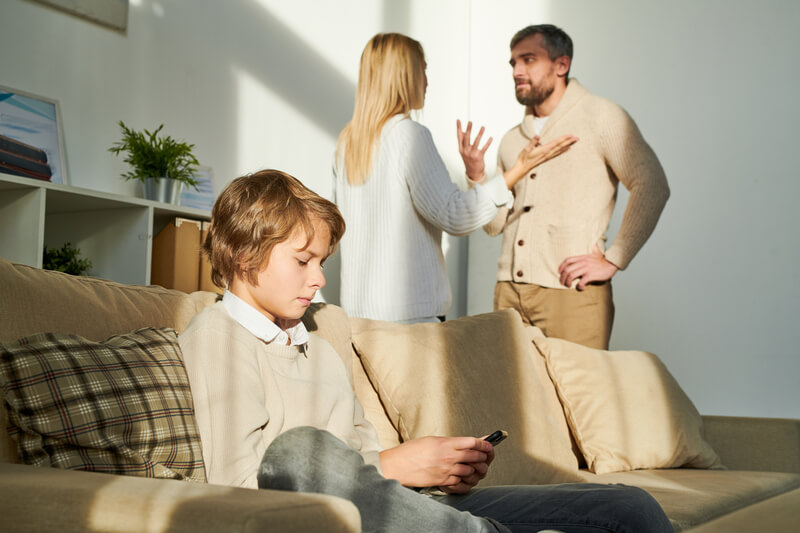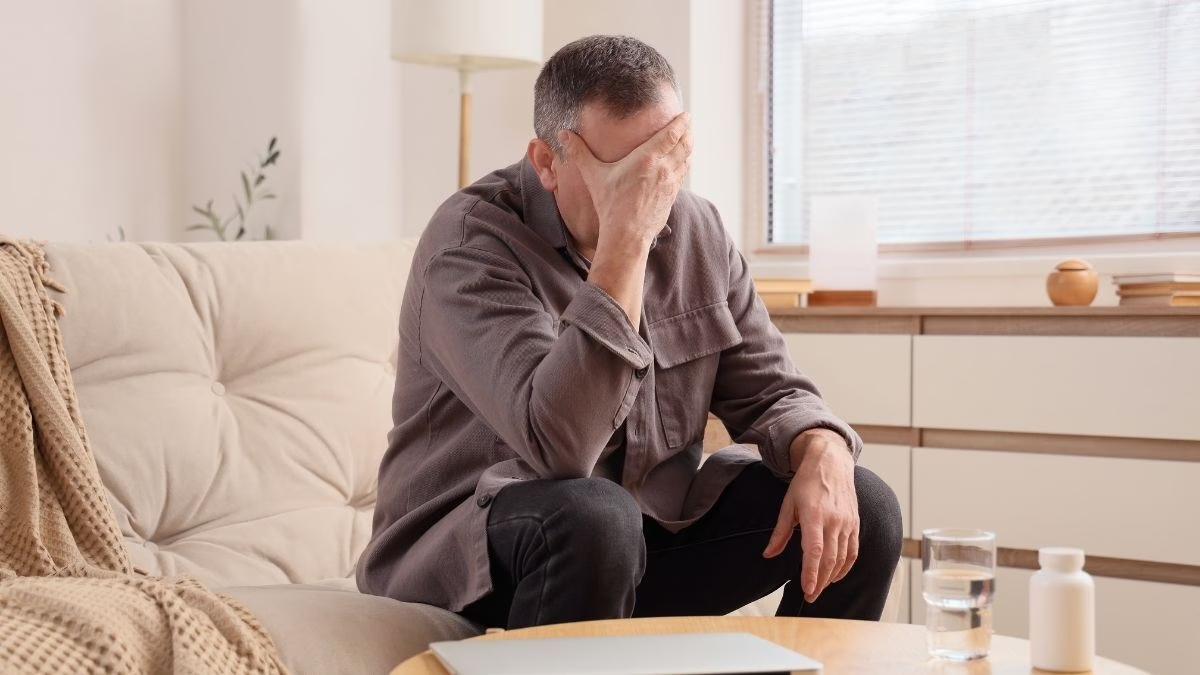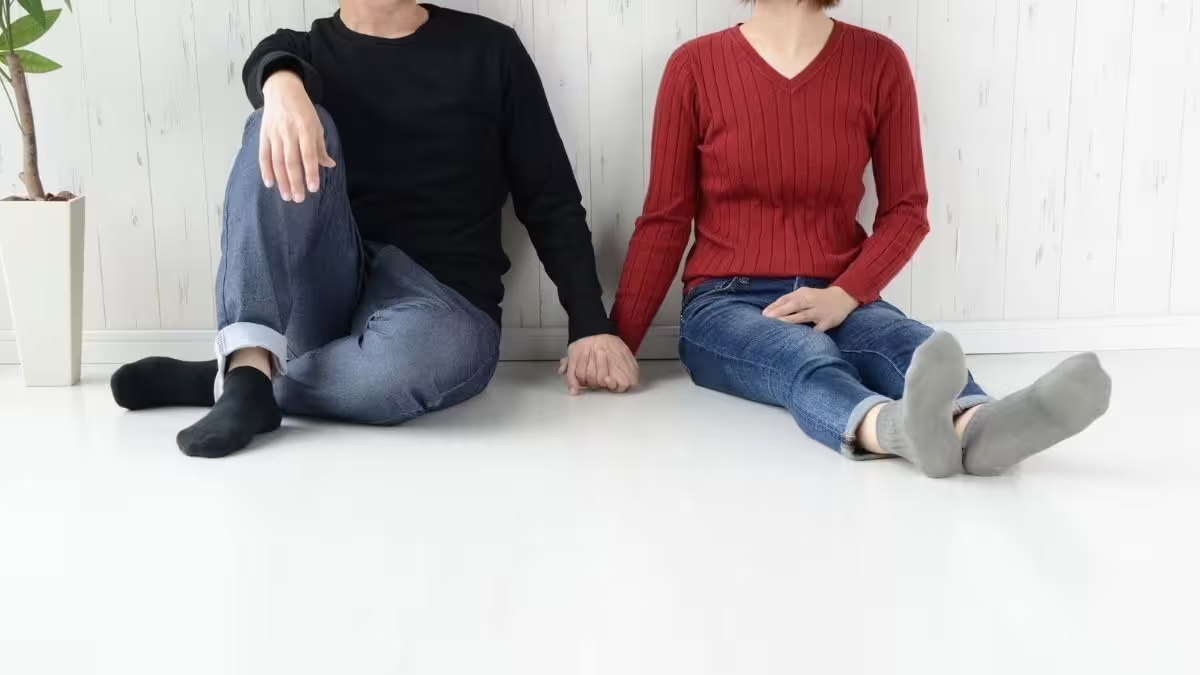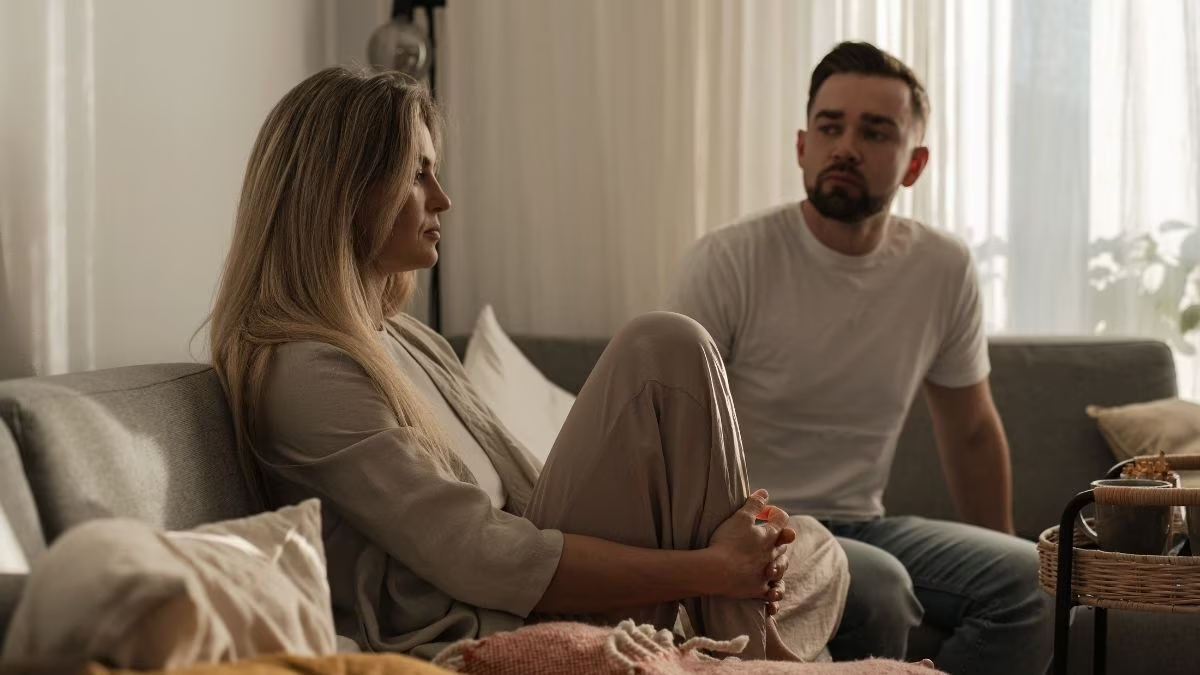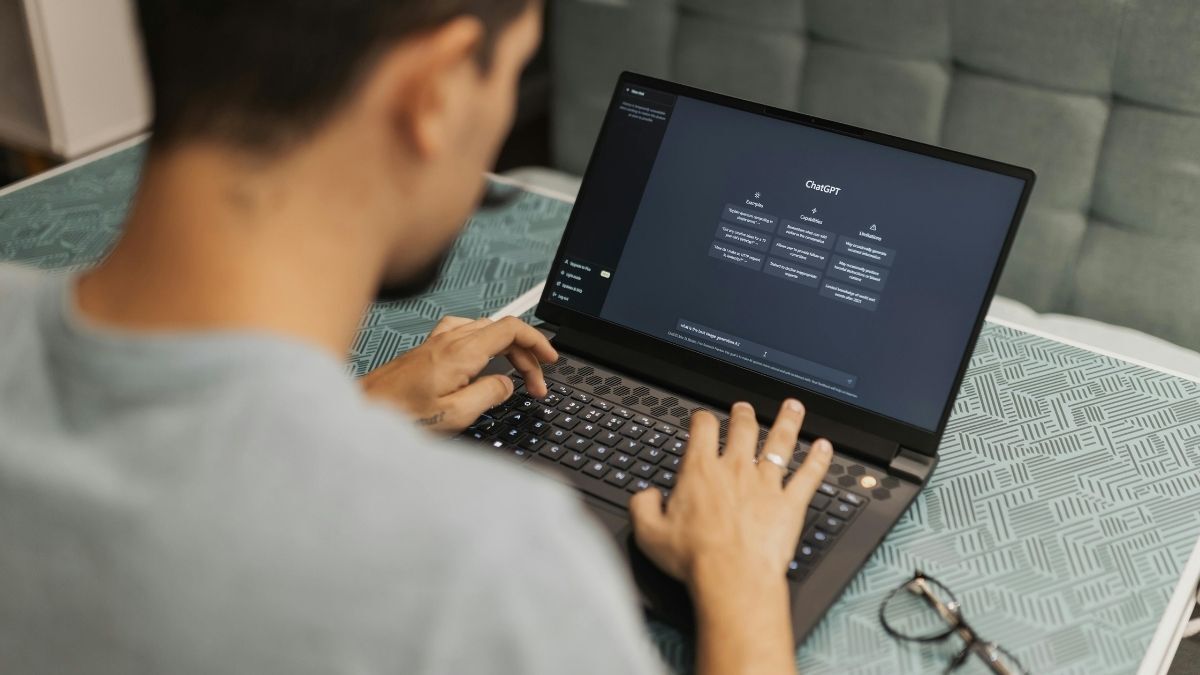long-distance relationship requires you to learn to love in different ways, through screens, time zones, and the quiet in-between moments. It’s a kind of love built on trust, creativity, and the choice to keep showing up even when it’s hard. Distance can test those things, but it doesn’t have to weaken your bond. With the right support and intention, it can even bring you closer and deepen your understanding of each other.
That’s where couples therapy for long-distance relationships comes in. Whether through video, phone, or online sessions, therapy provides a consistent space to stay connected, resolve issues before they grow, and build communication habits that make it easier to really hear each other and stay connected.
Why Do Long-Distance Relationships Feel So Difficult?
Long-distance relationships come with challenges that go beyond just missing each other. When you’re not sharing the same space or daily moments, it’s easy for small misunderstandings to grow bigger than they are. Without physical closeness, reassurance can take more effort, and things like tone or timing can suddenly feel heavier than intended.
Therapists often explain that this happens because our need for closeness is built into us. When you can’t see your partner’s expression or hear their tone clearly, your mind tends to fill in the blanks, usually with worry or assumption. Over time, that can lead to feeling unsure, disconnected, or even a little on edge.
But none of this means your relationship is in trouble. It simply means you care and you’re feeling the distance. Long-distance couples counseling helps you notice these patterns for what they are - a need for closeness - and teaches ways to stay connected.
How Does Couples Therapy Help Long-Distance Relationships?
Online couples therapy for long-distance relationships focuses on the same goals as in-person therapy: improving communication, rebuilding trust, and strengthening emotional safety. The difference lies in how these goals are achieved.
A therapist provides structure and accountability, helping partners navigate challenges like conflicting schedules or communication breakdowns. Sessions create a neutral space where both people feel heard, reducing defensiveness and misinterpretation —two of the most common stress points for long-distance couples.
Therapy helps long-distance couples:
- Develop clear communication frameworks
- Address emotional triggers without blame
- Create structure and consistency in connection
- Strengthen trust through shared accountability
Online therapy is also highly effective. Whether through video, chat, or phone sessions, therapists guide couples through research-backed exercises that strengthen understanding and repair.
Long-distance couples counseling helps you stay emotionally connected and intentional about your relationship, even when life keeps you far apart.
With the right structure and support, long-distance couples can build clarity, trust, and emotional closeness, even across miles.
How to Build Communication and Emotional Intimacy from Afar
When partners can’t rely on shared physical presence, communication becomes the bridge that keeps intimacy alive. In online therapy, couples learn tools that deepen connection even from a distance.
Therapists often teach reflective listening, a technique where one partner repeats back what they heard in their own words to confirm understanding. This prevents misinterpretations and helps each person feel acknowledged. They also use emotional labeling, encouraging partners to name feelings directly instead of letting tension build unspoken. This may sound like: “I’m anxious about us being so far apart this week.”
Therapists emphasize intentional connection rituals: regular times to talk without distractions, express gratitude, or share something small from your day. These routines create emotional rhythm and help partners feel more attuned to each other’s worlds.
When communication is consistent and intentional, couples begin to rebuild emotional closeness even without physical proximity. Therapy offers the structure and language to make that possible.
How to Strengthen Trust in a Long-Distance Relationship
Trust is one of the most sensitive areas for long-distance couples, and therapy provides a framework for strengthening it with transparency and consistency.
Distance can magnify insecurities. Missed calls, unanswered texts, or changes in tone can all feel bigger when there’s no immediate reassurance. Therapists help couples address these triggers directly instead of letting them spiral into assumptions.
Long-distance marriage counseling often includes reassurance practices, such as sharing weekly reflections, scheduling predictable contact times, or using open check-ins to discuss what feels supportive. These small, consistent behaviors reinforce emotional reliability, one of the cornerstones of trust.
Therapy also helps partners identify patterns that erode safety, such as defensiveness or avoidance. When these moments are understood through the lens of attachment and emotion, couples can respond with compassion instead of blame.
Strengthening trust from afar doesn’t happen overnight, but with therapeutic structure, partners learn that distance doesn’t have to equal disconnection.
How to Manage Time Zones and Schedules in a Long-Distance Relationship
Practical barriers often become emotional ones. Time zones, demanding jobs, or parenting responsibilities can make connections feel like another task instead of a comfort. Therapy helps couples reframe these realities not as limitations, but as logistics to navigate together.
Therapists encourage couples to create shared rituals of connection, such as morning voice notes, end-of-day video calls, or brief messages that reinforce “I’m thinking of you.” They also help partners manage expectations by setting boundaries around availability and communication times.
This balance between structure and flexibility helps couples avoid the common trap of feeling neglected or pressured. Instead of viewing scheduling conflicts as personal, therapy reframes them as opportunities for teamwork and collaboration.
Long-distance couples who establish healthy communication boundaries often experience more peace and predictability, which reduces unnecessary conflict and emotional fatigue.
Why Online Couples Therapy Is Ideal for Long-Distance Couples
Online couples therapy has become one of the most effective and accessible forms of support for long-distance relationships. Through secure video sessions, messaging, or guided digital tools, couples receive professional support that fits their time zones, schedules, and lifestyles.
Therapists use evidence-based methods, such as Emotionally Focused Therapy (EFT) and the Gottman Method, to help partners identify patterns and strengthen emotional connection. The online format often makes it easier for partners to open up from the comfort of their own environment, leading to more honest communication.
Platforms like OurRitual build on this model by combining expert-led sessions with interactive therapy exercises that couples can practice between appointments. These resources help maintain progress, deepen understanding, and keep emotional growth active even between sessions.
For many long-distance couples, online therapy becomes not just a form of support but a routine that keeps them grounded and connected.
How to Make a Long-Distance Relationship Work — Key Therapist Takeaways
Distance doesn’t automatically pull couples apart. It just takes more awareness and care to keep your bond strong. Here are some of the habits therapists see in couples who make long-distance work:
- Consistent communication: Make time to connect regularly, even briefly. Predictability builds safety.
- Shared goals: Discuss what you’re both working toward, such as visits, moving plans, or milestones, to maintain a sense of purpose.
- Emotional transparency: Talk about insecurities and needs openly before they become points of conflict.
- Individual stability: Maintain your own routines and friendships. A healthy sense of independence strengthens connection.
- Repair after conflict: Misunderstandings will happen. Repair quickly by acknowledging feelings, apologizing when needed, and reaffirming care.
Long-distance couples who integrate these practices often report a stronger emotional connection and a clearer sense of partnership.
Conclusion
Distance can test a relationship, but it doesn’t define it. With structure, communication, and support, couples can strengthen their connection no matter how far apart they are.
Couples therapy for long-distance relationships provides the tools, perspective, and accountability needed to turn physical separation into emotional growth.
If you’re ready to strengthen your connection, explore OurRitual’s online couples therapy to begin rebuilding trust, communication, and closeness - from anywhere in the world.
FAQs
What is couples therapy for long-distance relationships, and how does it differ from in-person therapy?
Couples therapy for long-distance relationships takes place virtually, allowing partners to meet with a licensed therapist through video, phone, or messaging. It offers the same therapeutic benefits as in-person sessions but provides greater flexibility for couples living apart.
What communication exercises are especially helpful for couples far apart?
Reflective listening, “I feel” statements, and daily emotional check-ins are especially effective for couples separated by distance. These techniques encourage empathy and prevent misunderstandings, helping partners stay emotionally in tune even when physically apart.
What techniques do therapists use in online couples therapy for long-distance couples?
Therapists often use methods like Emotionally Focused Therapy (EFT) and the Gottman Method, focusing on emotional safety, conflict resolution, and shared understanding. These approaches help couples manage distance-related triggers and strengthen trust.
How often should long-distance couples attend therapy sessions?
Most long-distance couples benefit from weekly sessions at first, followed by biweekly or monthly maintenance check-ins. Consistency is key, as it helps reinforce progress and keeps communication patterns strong.
What should I look for in a therapist for long-distance marriage counseling?
Look for a licensed professional experienced in online therapy and trained in relationship-focused approaches like EFT or the Gottman Method. It’s also important to feel comfortable and understood by your therapist, as that relationship sets the tone for your progress.
Can long-distance relationship support groups provide real value?
Yes. Support groups can reduce feelings of isolation and provide insight into how other couples navigate distance. While they don’t replace therapy, they complement it by offering community and shared perspective.
How can we rebuild trust when we feel insecure due to distance?
Rebuilding trust takes consistent reassurance, clear communication, and emotional openness. Therapy helps couples identify triggers, establish transparent habits, and replace assumptions with direct dialogue.
Can online couples therapy accommodate major time zone differences?
Yes. Many online therapists and platforms offer flexible scheduling, asynchronous messaging, or rotating session times that make therapy accessible across time zones.







